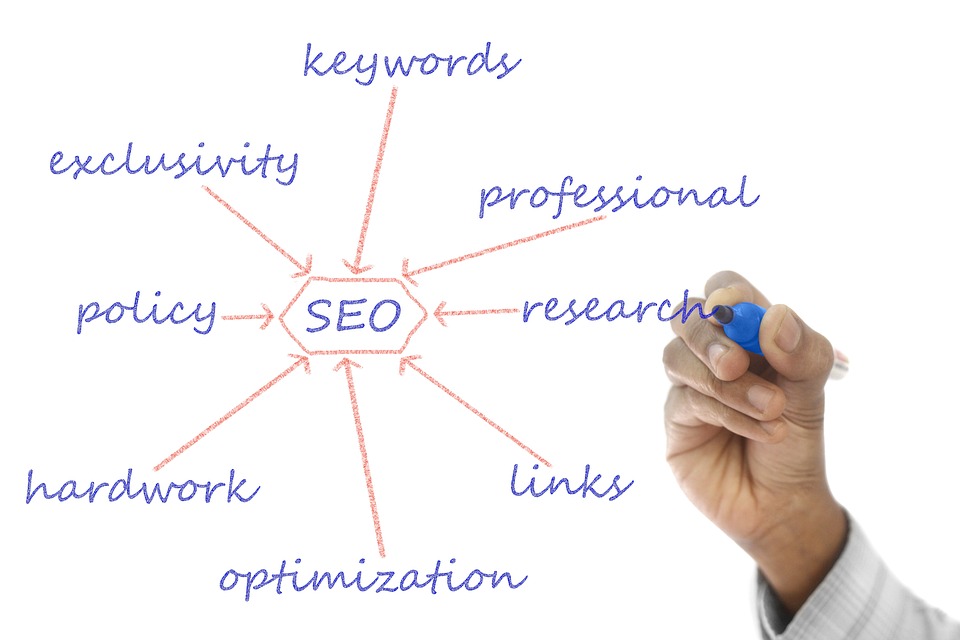10 Effective Strategies to Improve Your Website’s Search Rank
Are you struggling to get your website noticed in the vast ocean of the internet? Do you want to increase your website’s visibility and attract more organic traffic? If so, you’ve come to the right place! In this article, we will discuss ten effective strategies that can help you improve your website’s search rank and elevate your online presence. So, let’s dive in!
1. Conduct Thorough Keyword Research:
Keywords are the foundation of any successful SEO strategy. By identifying relevant keywords that are frequently searched by your target audience, you can optimize your website’s content accordingly. Utilize keyword research tools to explore high-traffic keywords with low competition, and strategically incorporate them into your website’s titles, meta descriptions, headers, and content.
2. Create High-Quality, Engaging Content:
Content is king when it comes to improving your search rank. Producing high-quality, informative, and engaging content not only attracts visitors but also encourages them to stay longer on your website. This, in turn, signals search engines that your website offers value to users, leading to an improved search rank.
3. Optimize On-Page Elements:
Optimizing on-page elements is crucial for improving your website’s search rank. Ensure that your website’s titles, meta descriptions, headers, and URLs are properly optimized with relevant keywords. Additionally, use descriptive alt tags for images, implement schema markup, and improve your website’s loading speed for a better user experience.
4. Build High-Quality Backlinks:
Backlinks remain an essential factor in search engine algorithms. Acquiring high-quality backlinks from reputable websites in your industry can significantly improve your website’s search rank. Develop a robust link-building strategy that focuses on building relationships with influencers, guest posting on authoritative websites, and creating shareable content that naturally attracts backlinks.
5. Enhance User Experience:
A positive user experience is vital for both visitors and search engines. Ensure that your website is mobile-friendly, responsive, and easy to navigate. Optimize your website’s speed, reduce bounce rates, and make the overall user experience enjoyable. This will not only please your audience but also boost your search rank.
6. Optimize for Local SEO:
If you have a local business, optimizing your website for local SEO is crucial. Create a Google My Business profile, optimize your website’s content with local keywords, and encourage customers to leave reviews. Local search optimization will help you appear in local search results, attracting more geographically targeted traffic.
7. Leverage Social Media:
Social media platforms are powerful tools for increasing your website’s visibility and driving traffic. Share your content on social media platforms regularly, engage with your audience, and encourage social sharing. This will not only generate referral traffic but also enhance your website’s authority and search rank.
8. Regularly Update and Optimize Your Website:
Search engines prefer websites that are updated frequently with fresh content. Regularly publish new blog posts, update outdated information, and optimize your website’s structure to keep it relevant and attractive to both users and search engines. Additionally, fix broken links, improve site navigation, and ensure that your website is free from technical errors.
9. Implement a Strong Internal Linking Strategy:
Internal links play a crucial role in improving your website’s search rank. Strategically interlink your website’s pages using relevant anchor text to guide users and search engines through your content. This not only improves user experience but also helps search engines understand the structure and importance of your website’s pages.
10. Monitor and Analyze Your Website’s Performance:
Regularly monitor and analyze your website’s performance using tools like Google Analytics. Track your website’s traffic, user behavior, conversion rates, and other key metrics to identify areas that need improvement. By understanding your website’s performance, you can make data-driven decisions and continually optimize your strategies to improve your search rank.
Frequently Asked Questions (FAQs):
Q: How long does it take to see results from these strategies?
A: The time it takes to see results can vary depending on various factors such as the competitiveness of your industry, the quality of your content, and the consistency of your efforts. Generally, it takes several months to notice significant improvements in your website’s search rank.
Q: Should I focus on organic or paid search strategies?
A: Both organic and paid search strategies have their benefits. Organic search strategies, such as improving your website’s SEO, can provide long-term results and are cost-effective. On the other hand, paid search strategies, such as running Google Ads campaigns, can provide immediate visibility and drive targeted traffic to your website.
Q: Can I improve my website’s search rank without technical knowledge?
A: Yes, you can improve your website’s search rank without extensive technical knowledge. While some strategies may require technical expertise, many SEO practices can be implemented with the help of user-friendly tools and resources available online. Additionally, hiring an SEO professional can greatly assist you in implementing effective strategies.
In conclusion, by implementing these ten effective strategies, you can significantly improve your website’s search rank and attract more organic traffic. Remember, SEO is an ongoing process that requires consistent effort and adaptation to stay ahead of the competition. So, start implementing these strategies and watch your website climb the search engine rankings!









